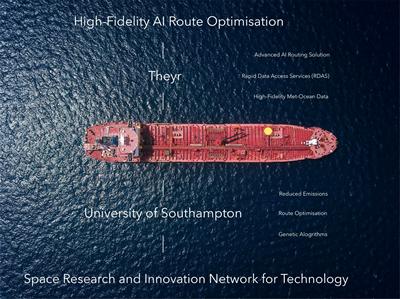Reducing global GHG emissions through novel Evolutionary Computation

Shipping is an efficient form of transport. However, it is still responsible for approximately 1100 Million tonnes of CO2 (MtCO2) equivalent per year, contributing ~2.5% of world emissions. With more than 80,000 commercial vessels operating in our oceans it is imperative to improve their efficiency and to reduce their impact on our planet. To support the reduction in greenhouse gas emissions there is increasing legislative pressure from IMO, which in combination with the increase in the cost of compliant fuels such as ammonia and hydrogen, has led to a demand for solutions to reduce the fuel consumption of commercial vessels. One solution is voyage optimisation software, which have been shown to reduce fuel costs and Green House Gas emissions by up to 10-15%, or 143.2 Million tonnes of CO2, which is equivalent to that produced by Belgium.
SMMI experts, Dr Adam Sobey and Dr Przemyslaw Grudniewski, from the Maritime Engineering group at the University of Southampton and the Marine and Maritime group in the Data-Centric Engineering programme at The Alan Turing Institute, have partnered with Theyr ltd to create an efficient voyage optimisation solution for commercial vessels. The software combines real-time high-fidelity met-ocean data, provided by Theyr ltd, with a world-leading Genetic Algorithm developed previously by Dr Sobey and Dr Grudniewski during grant sponsored by Lloyd’s Register Foundation. This will increase the robustness and effectiveness of voyage planning, allowing vessels to avoid poor weather and travel at efficient speeds to reduce Greenhouse Gas emissions. Solution benchmarking is already showing improvements of up to 5% over currently existing solutions and this can be translated as 160,000 tonnes of CO2 per 1,000 vessels it is installed on, which is equivalent to the CO2 saved from operating 35 wind turbines, a significant cost and emission reduction.
The project is funded by a grant from the £4.8 million SPRINT program (SPace Research and Innovation Network for Technology), which was developed to help merge commercial data and technologies with innovative university research.